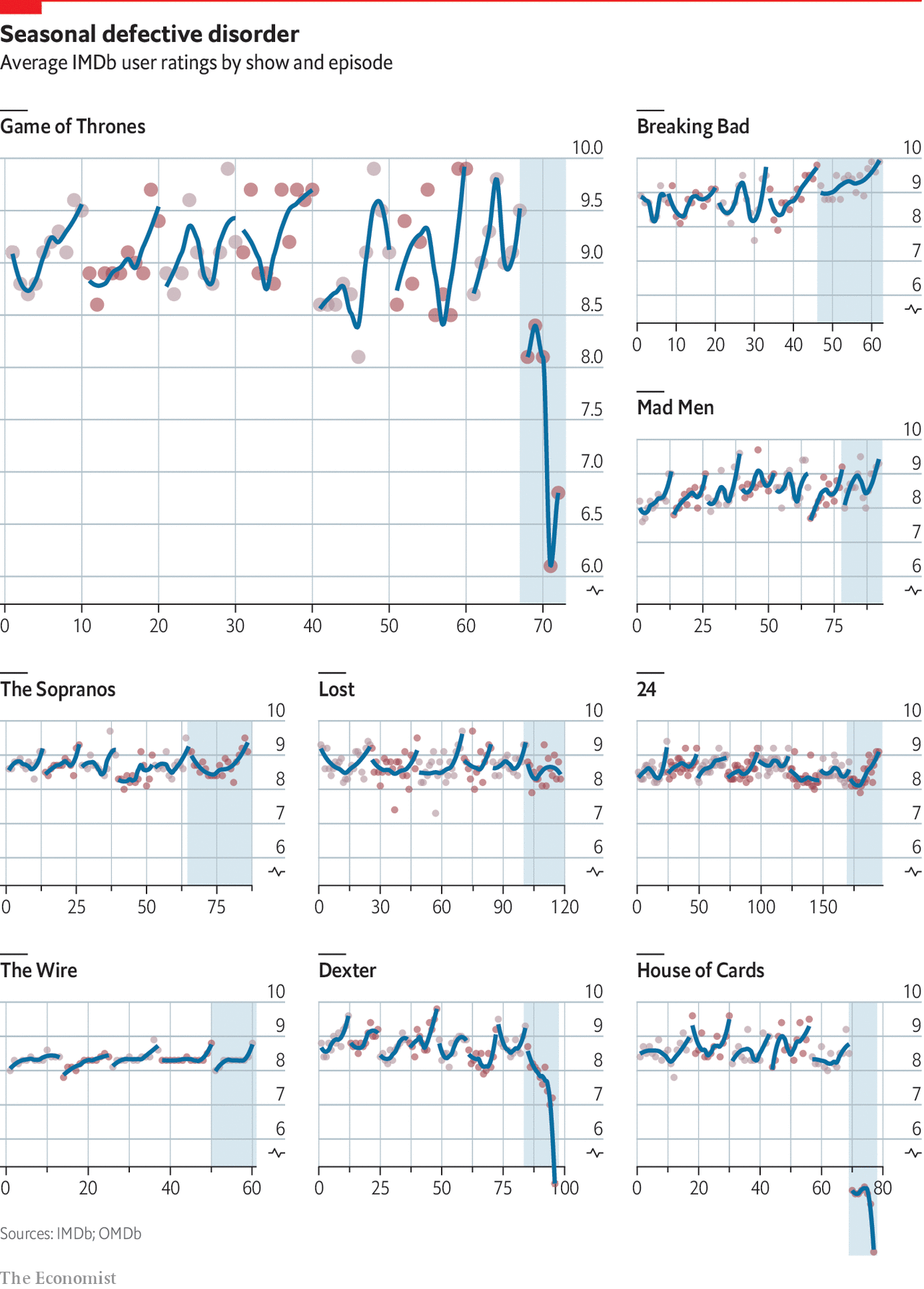
The Decline of Game of Thrones: A Critical Analysis
The HBO series *Game of Thrones*, adapted from George R.R. Martin’s *A Song of Ice and Fire* novels, captivated audiences worldwide for nearly a decade. Its intricate political machinations, compelling characters, and stunning visuals set a new standard for television fantasy. However, as the series progressed, particularly in its later seasons, a growing number of viewers and critics alike began to voice concerns about the show’s declining quality. The infamous coffee cup incident, while seemingly trivial, became a potent symbol of what many perceived as a broader trend: a rush to the finish line that resulted in narrative inconsistencies, character derailment, and ultimately, a diminished legacy.
The Rise of a Phenomenon
*Game of Thrones* premiered in 2011 to widespread acclaim. Its commitment to complex storytelling, morally ambiguous characters, and a world that felt both fantastical and grounded in reality resonated deeply with viewers. The show’s willingness to kill off major characters, a departure from typical television tropes, kept audiences on the edge of their seats. This unpredictability, combined with high production values and a strong ensemble cast, propelled *Game of Thrones* to become a global phenomenon.
Early Seasons: A Masterclass in Adaptation
The first four seasons of *Game of Thrones* are widely considered to be the show’s strongest. These seasons closely followed the plots of Martin’s novels, translating his intricate world-building and complex character arcs to the screen with remarkable fidelity. The showrunners, David Benioff and D.B. Weiss, demonstrated a keen understanding of the source material, making strategic adaptations that streamlined the narrative without sacrificing its core themes and character development. The political intrigue of King’s Landing, the struggles of the Starks in the North, and Daenerys Targaryen’s journey across the Narrow Sea were all brought to life with stunning visual flair and compelling performances.
The Departure from the Source Material
As the series progressed, the showrunners began to deviate more significantly from Martin’s published works. This was partly due to the fact that the novels were not yet complete, leaving Benioff and Weiss to create their own storylines and endings. While some adaptations were successful, others were met with criticism. The divergence from the source material became particularly pronounced in the later seasons, leading to concerns about pacing, character consistency, and overall narrative coherence.
The Cracks Begin to Show
The shift away from the source material exposed some of the weaknesses in the show’s writing. Characters began to act in ways that felt inconsistent with their established personalities, plotlines were rushed or abandoned altogether, and previously complex political dynamics were simplified. While the visual spectacle remained impressive, the narrative depth that had characterized the earlier seasons began to diminish.
Pacing Issues and Rushed Storylines
One of the most common criticisms leveled against the later seasons of *Game of Thrones* was the pacing. Storylines that had previously unfolded over multiple seasons were compressed into a handful of episodes, leading to a sense of narrative whiplash. Characters were able to travel vast distances in impossibly short periods of time, and complex political situations were resolved with unrealistic ease. This rushed pacing undermined the sense of realism and immersion that had been a hallmark of the show’s earlier seasons.
Character Derailment and Inconsistent Motivations
Several key characters underwent significant changes in their personalities and motivations in the later seasons, often without adequate explanation. Daenerys Targaryen’s descent into madness, for example, was seen by many as a jarring and unearned twist. Similarly, Jaime Lannister’s sudden return to Cersei after making significant progress towards redemption was viewed as a betrayal of his character arc. These inconsistencies undermined the audience’s investment in the characters and their journeys.
The Infamous Coffee Cup
The appearance of a modern-day coffee cup in a scene during the fourth episode of season eight became a symbol of the show’s declining attention to detail. While the error itself was relatively minor, it highlighted a broader sense of carelessness and a lack of quality control. The coffee cup incident, along with other similar gaffes, served as a reminder that the show was no longer operating at the same level of meticulousness that had characterized its earlier seasons.
Analyzing the Plot Holes
Beyond the pacing and character issues, the later seasons of *Game of Thrones* were plagued by a number of significant plot holes. These inconsistencies in the narrative logic further eroded the show’s credibility and left viewers feeling frustrated and disappointed.
The Night King’s Motivations
The Night King, the seemingly unstoppable leader of the White Walkers, was built up as a major antagonist throughout the series. However, his motivations remained largely unexplained, and his ultimate defeat felt anticlimactic. The fact that he was killed by Arya Stark, rather than Jon Snow, who had been positioned as his primary adversary, was seen by many as a narrative misstep.
The Iron Fleet’s Teleportation Abilities
Euron Greyjoy’s Iron Fleet seemed to possess the ability to appear anywhere at any time, often with little or no explanation. This made it difficult to understand the strategic implications of naval warfare in the *Game of Thrones* universe and undermined the sense of realism;
Varys’s Sudden Betrayal
Varys, the Master of Whisperers, was a shrewd and pragmatic character who had always prioritized the good of the realm. His sudden decision to betray Daenerys Targaryen, without any clear justification, felt out of character and served primarily to advance the plot.
The Impact of Fan Theories and Expectations
The intense fan engagement with *Game of Thrones* created a unique set of challenges for the showrunners. As viewers developed their own theories and expectations about the show’s ending, it became increasingly difficult to satisfy everyone. Some critics argued that Benioff and Weiss were too concerned with subverting fan expectations, even if it meant sacrificing narrative coherence.
The Pressure to Subvert Expectations
The desire to surprise and shock audiences can be a powerful tool in storytelling. However, when subversion becomes the primary goal, it can lead to plot twists that feel contrived and unearned. Some viewers felt that the later seasons of *Game of Thrones* prioritized shocking twists over satisfying character arcs and logical plot developments.
The Unrealistic Expectations of Fans
It is important to acknowledge that the intense scrutiny and high expectations of *Game of Thrones* fans may have contributed to the perception of decline. No matter how the show ended, it was unlikely that everyone would be satisfied. The sheer number of fan theories and predictions created a situation where any ending was bound to disappoint at least some viewers.
Behind the Scenes: Production Challenges and Creative Decisions
The production of *Game of Thrones* was a massive undertaking, involving a large cast and crew, multiple filming locations, and complex special effects. The challenges of managing such a large-scale production may have contributed to some of the issues that plagued the later seasons. Furthermore, creative decisions made by the showrunners, such as the decision to end the series after eight seasons, may have also played a role.
The Strain of a Large-Scale Production
Producing a show of *Game of Thrones*’s scale and complexity requires immense resources and meticulous planning. The logistical challenges of coordinating multiple filming locations, managing a large cast and crew, and creating convincing special effects can put a significant strain on the production team. This strain may have contributed to the decline in quality observed in the later seasons.
The Decision to End the Series After Eight Seasons
Benioff and Weiss made the decision to end *Game of Thrones* after eight seasons, despite the fact that Martin’s *A Song of Ice and Fire* series was not yet complete. This decision may have been driven by a desire to move on to other projects, or by a belief that the story had reached its natural conclusion. However, it also meant that the showrunners had to compress the remaining storylines into a shorter timeframe, which may have contributed to the pacing issues and plot holes.
The Legacy of *Game of Thrones*: A Mixed Bag
Despite its controversial ending, *Game of Thrones* remains a significant cultural phenomenon. The show’s impact on television is undeniable, and it helped to usher in a new era of high-budget, serialized fantasy dramas. However, the decline in quality in the later seasons has tarnished the show’s legacy and raised questions about its long-term place in television history.
The Show’s Impact on Television
*Game of Thrones* raised the bar for television production and storytelling. Its complex characters, intricate plots, and stunning visuals inspired a new generation of television creators and paved the way for other ambitious fantasy dramas. The show’s success also demonstrated the potential for serialized storytelling to captivate a global audience.
- Elevated production values for television fantasy.
- Popularized complex, morally ambiguous characters.
- Demonstrated the global appeal of serialized storytelling.
A Tarnished Legacy?
While *Game of Thrones* will undoubtedly be remembered as one of the most influential television shows of all time, the decline in quality in the later seasons has cast a shadow over its legacy. The rushed pacing, character inconsistencies, and plot holes have left many viewers feeling disappointed and betrayed. Whether the show will ultimately be remembered for its early brilliance or its disappointing ending remains to be seen.
Lessons Learned: What Can Future Shows Learn from *Game of Thrones*?
The success and eventual decline of *Game of Thrones* offer valuable lessons for future television shows. By analyzing the show’s strengths and weaknesses, creators can learn how to avoid similar pitfalls and create more satisfying and enduring narratives.
The Importance of Staying True to the Source Material
When adapting a book or other source material for television, it is crucial to stay true to the core themes and character arcs. While some adaptations may be necessary, significant deviations from the source material can alienate fans and undermine the narrative’s integrity.
The Need for Careful Pacing and Character Development
Pacing and character development are essential elements of good storytelling. Rushing storylines or making sudden, unexplained changes to characters can leave viewers feeling confused and disengaged. It is important to allow characters to evolve naturally and to give storylines the time they need to unfold properly.
The Dangers of Subverting Expectations for the Sake of Subversion
While surprising audiences can be a valuable tool in storytelling, it is important to avoid subverting expectations simply for the sake of subversion. Plot twists should be earned and should serve to enhance the narrative, rather than undermine it.
Maintaining Quality Control Throughout the Production Process
Producing a high-quality television show requires meticulous attention to detail at every stage of the production process. From writing and directing to editing and special effects, it is crucial to maintain a high standard of quality control to ensure that the final product meets the expectations of viewers.
*Game of Thrones* was a cultural phenomenon that redefined television fantasy, bringing dragons, political intrigue, and complex characters to a global audience. The early seasons of the show were a masterclass in adaptation, faithfully translating George R.R. Martin’s intricate world to the screen. However, as the series progressed and deviated from the source material, cracks began to appear. Pacing issues, character derailment, and plot holes plagued the later seasons, ultimately tarnishing the show’s legacy. While *Game of Thrones* will undoubtedly be remembered as a landmark television series, its decline serves as a cautionary tale about the dangers of rushing a story to its conclusion and prioritizing shock value over narrative coherence.



